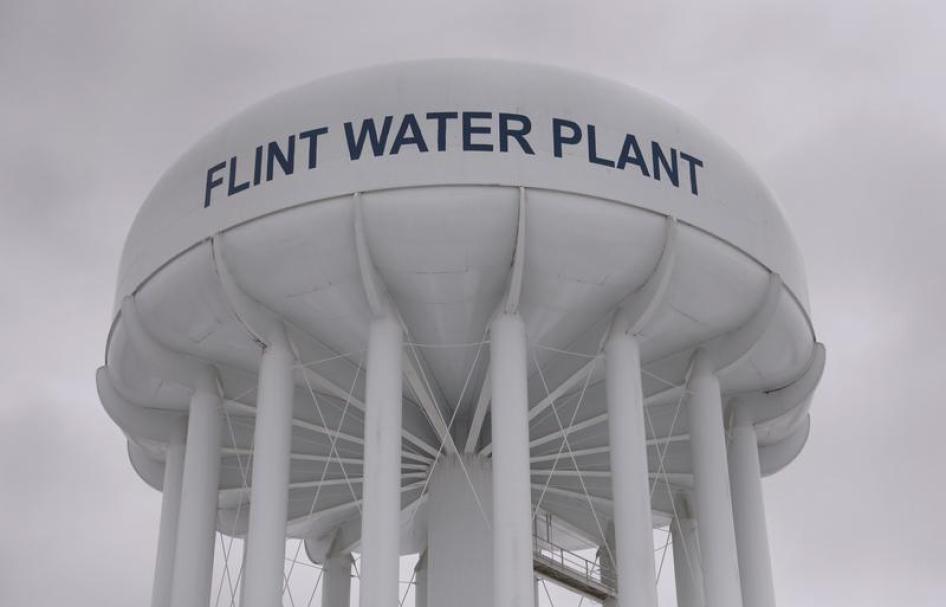In April 2014, Dionna—a native of Flint, Mich.—was experiencing the water crisis firsthand. To cut costs, Flint city officials had switched the city's drinking water supply from Detroit's system to the dangerous Flint River. The Flint River is naturally high in corrosive chloride, and the absence of certain phosphates that control metal corrosion in the water treatment process allowed rust containing lead to contaminate the water supply. Reports of foul-smelling, discolored, and off-tasting water began to arise, especially from Flint's working-class Black and brown communities.
Dionna, now the national director of youth environmental justice programs at Young, Gifted & Green (YGG), a Black-woman-led policy organization, was in high school then.
Dionna believes that the high amounts of lead in her blood later led to ADHD and dyslexia diagnoses—issues she had not experienced before. Though Dionna only consumed bottled water after learning of the contamination, her doctor told her that exposure to contaminated water through the skin can result in elevated lead levels in the blood.
Bria, now a researcher and advocate at Human Rights Watch, was at that time a student at Iowa State University watching the Flint water crisis from 600 miles away and felt compelled to get involved. What started as homemade friendship bracelets with a link to a GoFundMe campaign, turned into local media coverage, and later generated resources to the people of Flint.
Perhaps the most alarming aspect of the crisis was the effect on the estimated 9,000 children of Flint who experienced elevated blood lead levels—leading to learning and behavioral problems. Scientists have made clear that there is no safe level of lead exposure and pregnant women and children are particularly vulnerable. Some tests showed the water in Flint had more than 100 times the legal level of lead.
This is just one example of the devastating impacts of environmental racism across the United States. Insufficient regulation, enforcement, and investment in public water infrastructure and waterways hits Black and brown people the hardest. The majority-Black city of Jackson, Miss. has had water quality concerns for years that came to a head in 2022, when the Pearl River flooded, shutting down the water treatment facility and leaving over 150,000 residents without access to safe drinking water. Residents in Flint and Jackson suffered because of economic divestment and neglect by state and national leaders, both elements of structural racism.
In Flint, a research team led by a local pediatrician, Dr. Mona Hanna-Attisha, released a study finding the number of children with elevated lead levels in their blood doubled—and in some neighborhoods tripled—after the switch in the water supply. Although the water supply switched back to the Detroit water system in 2015, it was too late, as the pipes were already corroded, and people's health was permanently affected.
Thanks to Dr. Hanna-Attisha and the hard-fought activism by local advocacy groups like YGG, the local government began replacing pipes in 2016. However, the problems faced by Flint residents persist today. The number of children and young adults in Flint-area schools who now qualify for disability services has climbed since the water crisis, and far outweighs the resources schools can offer.
People in Flint and Jackson are advocating for their local governments to undo the harm they created by reimbursing them for water bills, replacing damaged water pipes and water mains, providing health and education services, and including local residents in decision-making.
Access to clean and safe water is a human right. Moreover, the right to adequate housing, the right to safe food, and the right to health are also affected when safe water is not available. In 2016, United Nations experts called the Flint water crisis a human rights disaster and said that the U.S. government needed to improve environmental protections and address environmental threats to human rights.
We want to renew that request. The United States should also tighten regulation to limit the amount of toxic chemicals in our water and strengthen protections for vulnerable communities. It's long past time for the U.S. to finally treat water like the human right it is.










